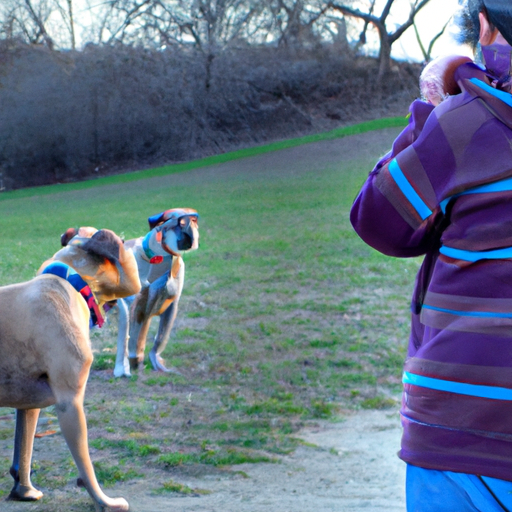“`markdown
Why Does My Dog Bark at Some Dogs and Not Others?
Understanding Your Dog’s Behavior
In your journey as a caregiver to your beloved canine companion, you’ve likely noticed some puzzling behaviors. For instance, why does your dog bark at some dogs and not others? It’s a question many dog owners ask themselves.
Dogs, like people, have their own personalities, likes, dislikes, and ways of expressing themselves. They also have their own unique set of experiences that shape their behavior. Here are some reasons why your furry friend might be selective in their barking:
- Socialization: Dogs that are well socialized tend to be more confident and less likely to bark at other dogs.
- Fear or Anxiety: Conversely, a dog might bark at certain dogs due to fear or anxiety.
- Territorial Behavior: Dogs are territorial creatures and may bark to protect their space.
- Excitement: Sometimes, your dog is just excited and wants to play!
Decoding the Bark
Now that you understand some potential reasons behind your dog’s selective barking, it’s important to decode their barks. This can be a vital tool in managing and responding to their behavior.
- Rapid, Continuous Barking: Indicates urgency or excitement.
- Prolonged or Drawn Out Barks: Often a sign of fear or anxiety.
- Brief, Sharp Barks: Could be territorial or aggressive.
As a caregiver, observing these patterns may help you better understand and cater to your dog’s needs.
How to Manage Barking
Managing your dog’s barking can be a challenge, but with a little patience, you can help them navigate their social world more peacefully.
- Reinforce Positive Interactions: Reward your dog when they remain calm around other dogs.
- Socialization: Expose your dog to a variety of experiences to help them become comfortable in different situations.
- Professional Help: If the barking becomes a serious issue, consider seeking help from a professional dog trainer or behaviorist.
Should You Be Worried?
As a caregiver, it’s normal to worry when you notice changes in your dog’s behavior. However, occasional selective barking is usually not a cause for concern. It’s when the barking becomes frequent or aggressive that you should seek professional advice.
| When to Worry | When Not to Worry |
|---|---|
| Frequent or aggressive barking | Occasional barking |
| Changes in appetite or behavior | Excited barking during playtime |
| Signs of fear or anxiety | Barking at unfamiliar dogs |
FAQ
Q: Does breed affect my dog’s barking behavior?
A: Yes, certain breeds tend to be more vocal than others.
Q: Can I train my dog to stop barking at other dogs?
A: Yes, with patience and consistency, you can train your dog to bark less.
Q: Is it normal for my dog to bark at some dogs and not others?
A: Yes, dogs have their own personalities and preferences.
Remember, as a caregiver, your role is to provide a safe, loving environment for your dog. Understanding their barking is just one part of that journey.
“`



